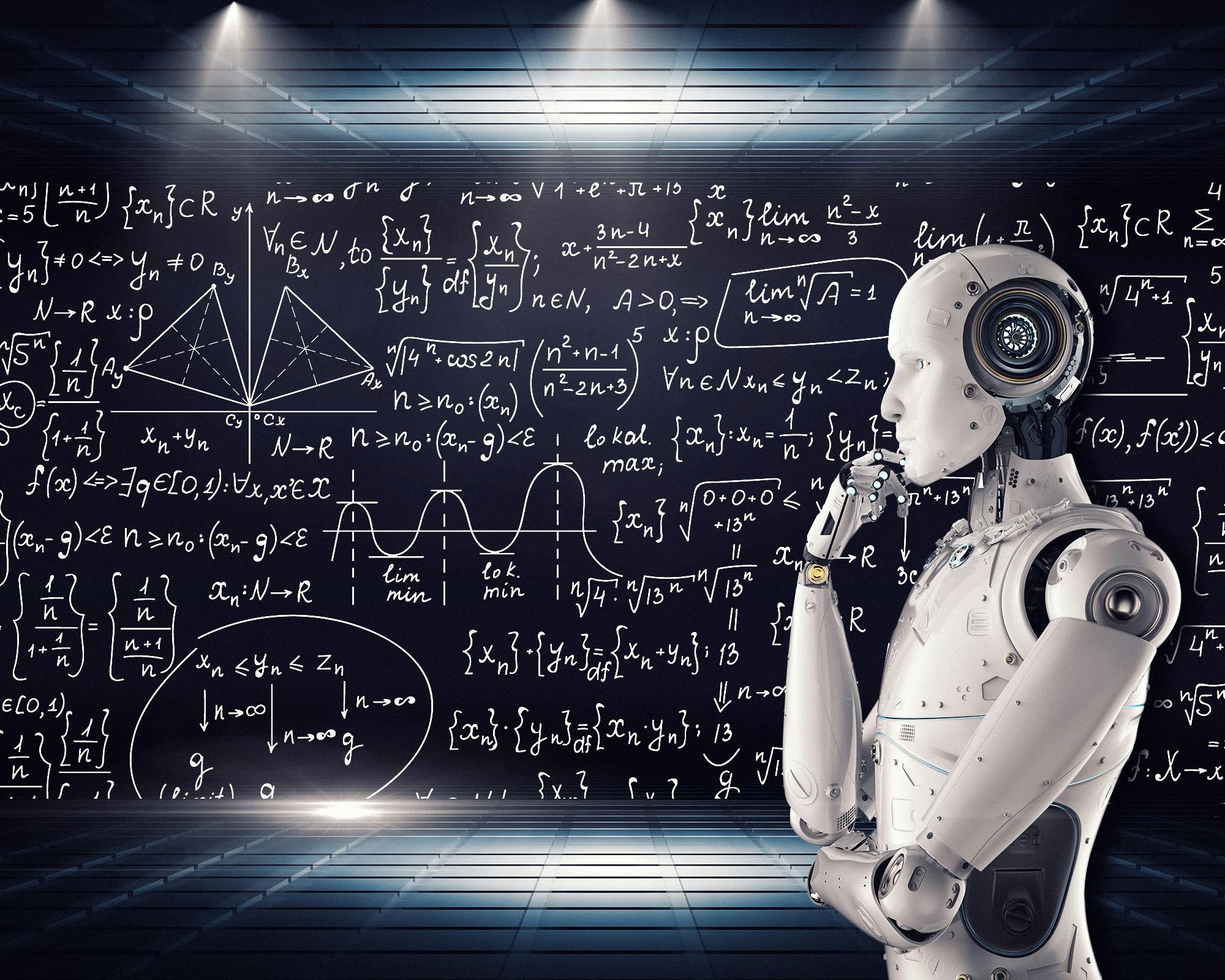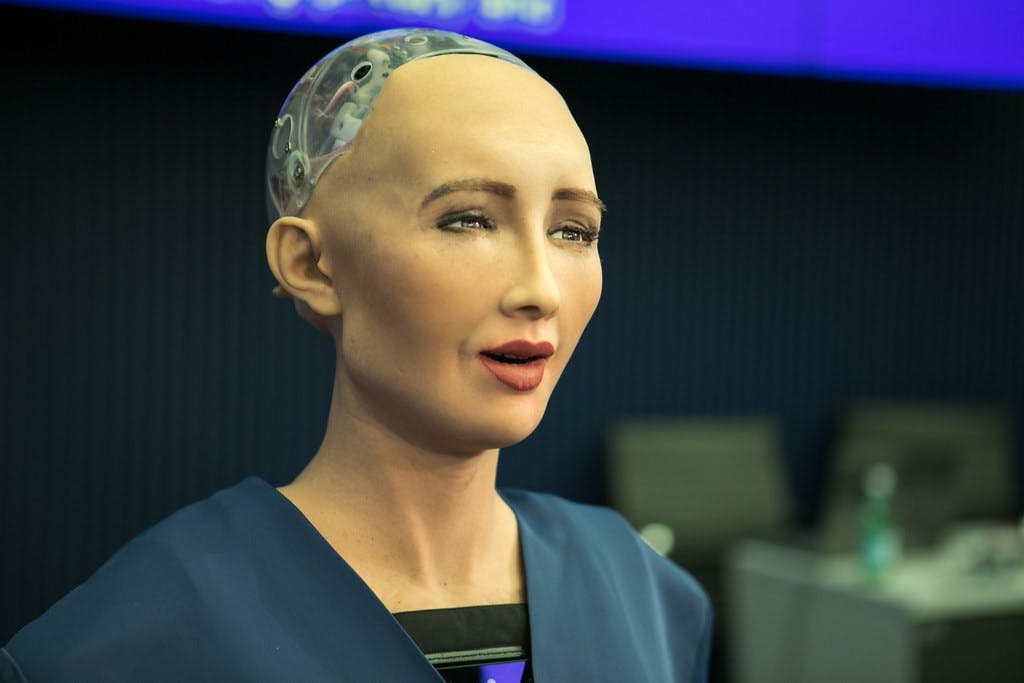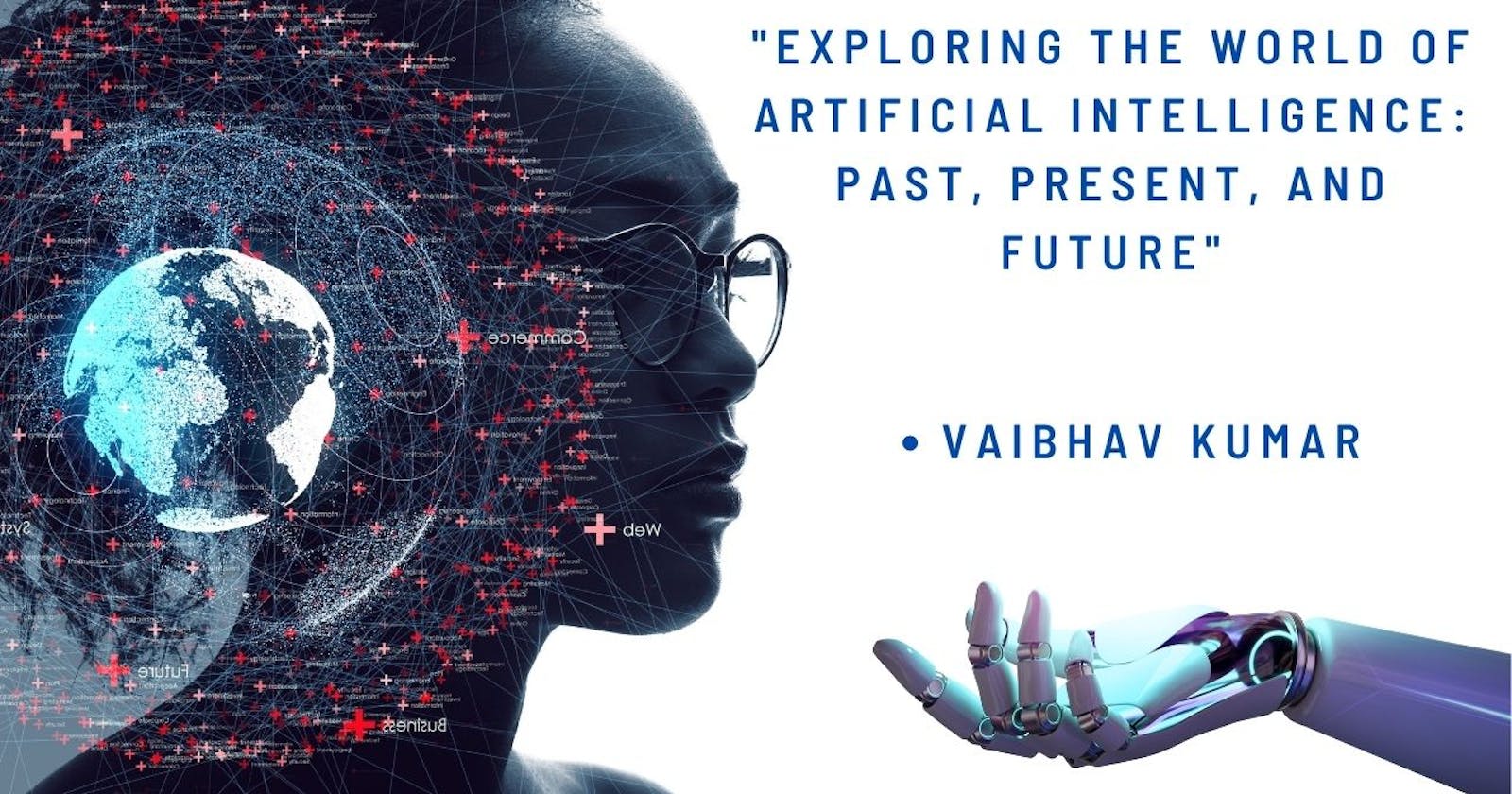"Exploring the World of Artificial Intelligence: Past, Present, and Future"
Know about AI in 4 minutes
Table of contents
No headings in the article.
Welcome to our article on AI. In this piece, we will explore the various applications of AI, including machine learning, natural language processing, and computer vision. We will also delve into the history of AI and its current state of development. Additionally, we will discuss the potential future of AI and the impact it may have on society. Whether you're a seasoned expert or just starting to learn about AI, we hope you will find this article informative and thought-provoking.

Artificial Intelligence (AI) is rapidly becoming one of the most important technologies in the world today. It has the potential to revolutionize many industries and change the way we live our lives. From self-driving cars to virtual personal assistants, AI is already impacting our daily lives in a big way. In this article, we will explore the current state of AI and its potential future impact on society.
First, let's define what we mean by AI. At its core, AI is the ability of a computer or machine to perform tasks that would normally require human intelligence. This can include tasks such as understanding natural language, recognizing images, and making decisions. There are two main types of AI: narrow or weak AI and general or strong AI. Narrow AI is designed to perform a specific task, such as facial recognition or playing chess. On the other hand, general AI is capable of performing any intellectual task that a human can.
Currently, most of the AI that we interact with on a daily basis is narrow AI. This includes things like Siri or Alexa, which are able to understand our voice commands and perform specific tasks. However, as technology continues to improve, we are seeing more and more examples of general AI. For example, Google's AlphaGo was able to beat the world champion in the game of Go, which is considered to be much more complex than chess.
One of the most promising areas of AI research is in the field of machine learning. Machine learning is a subset of AI that involves training computers to learn from data. This is done by feeding the computer large amounts of data and allowing it to learn patterns and make predictions. This is the technology that powers many of the AI applications that we interact with on a daily basis, such as image recognition and natural language processing.
One of the major benefits of AI is that it has the potential to automate many tasks that are currently done by humans. This can lead to increased efficiency and cost savings for businesses. For example, self-driving cars have the potential to significantly reduce the number of accidents caused by human error. Additionally, AI-powered robots can be used to perform dangerous tasks, such as working in mines or cleaning up nuclear power plants.
Another potential benefit of AI is that it can be used to improve healthcare. AI-powered diagnostic tools have the potential to quickly and accurately diagnose diseases. Additionally, AI-powered robots can be used to perform surgeries with a level of precision that is currently impossible for humans.
Despite the many potential benefits of AI, there are also some concerns. One of the biggest concerns is the potential for job loss as machines take over tasks that were previously done by humans. Additionally, there are concerns about the impact of AI on privacy and security. As AI becomes more advanced, it will be able to process and analyze large amounts of data, which could be used to invade people's privacy.
Overall, AI is an incredibly powerful technology that has the potential to change the world in a big way. While there are concerns, the potential benefits are too great to ignore. As a society, we need to continue to invest in AI research and development and ensure that we are using this technology in a responsible and ethical way.
In the end, it's important to keep in mind that AI is a tool, like any other technology. It has the potential to do great things, but it's up to us to use it responsibly. As AI continues to advance, we will need to work together to ensure that it is used for the benefit of all people, not just a select few.

READ ANOTHER ARTICLE -

